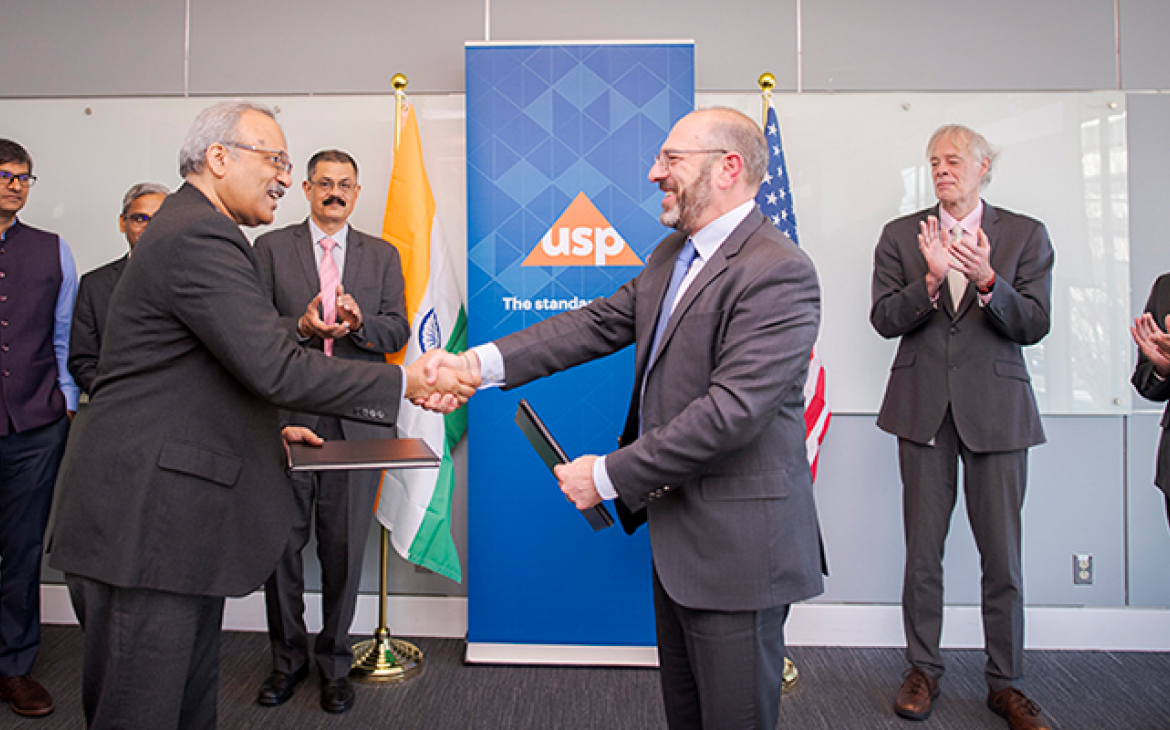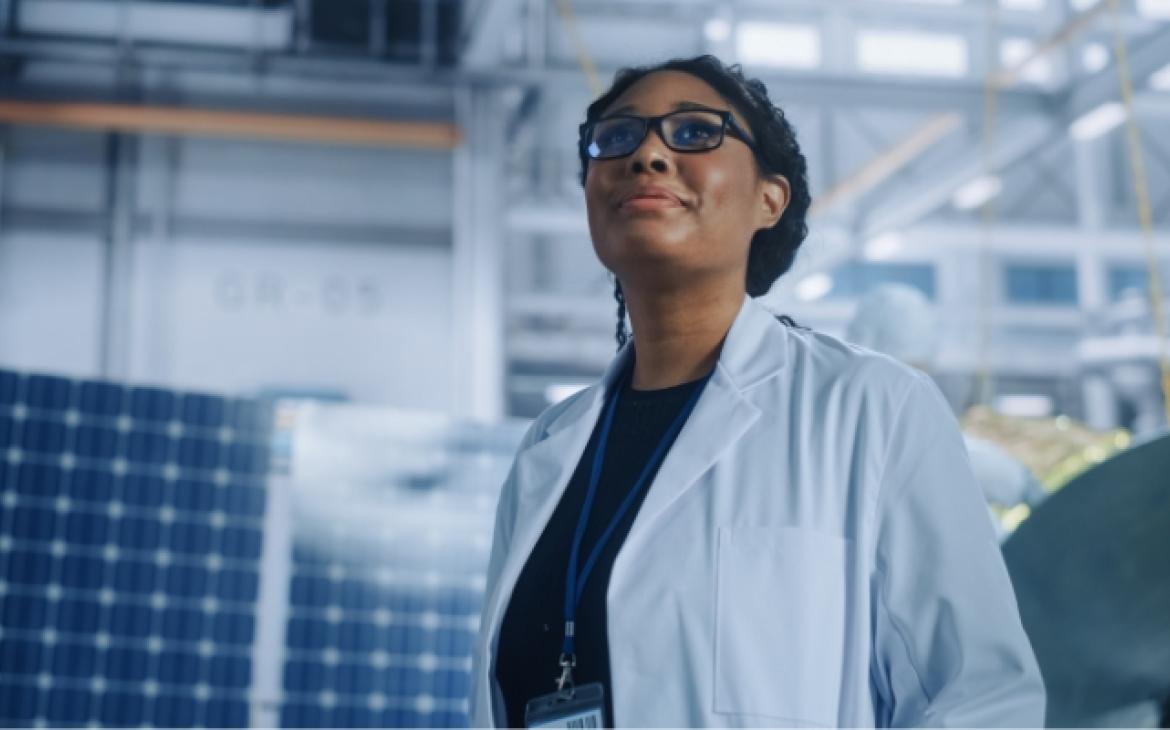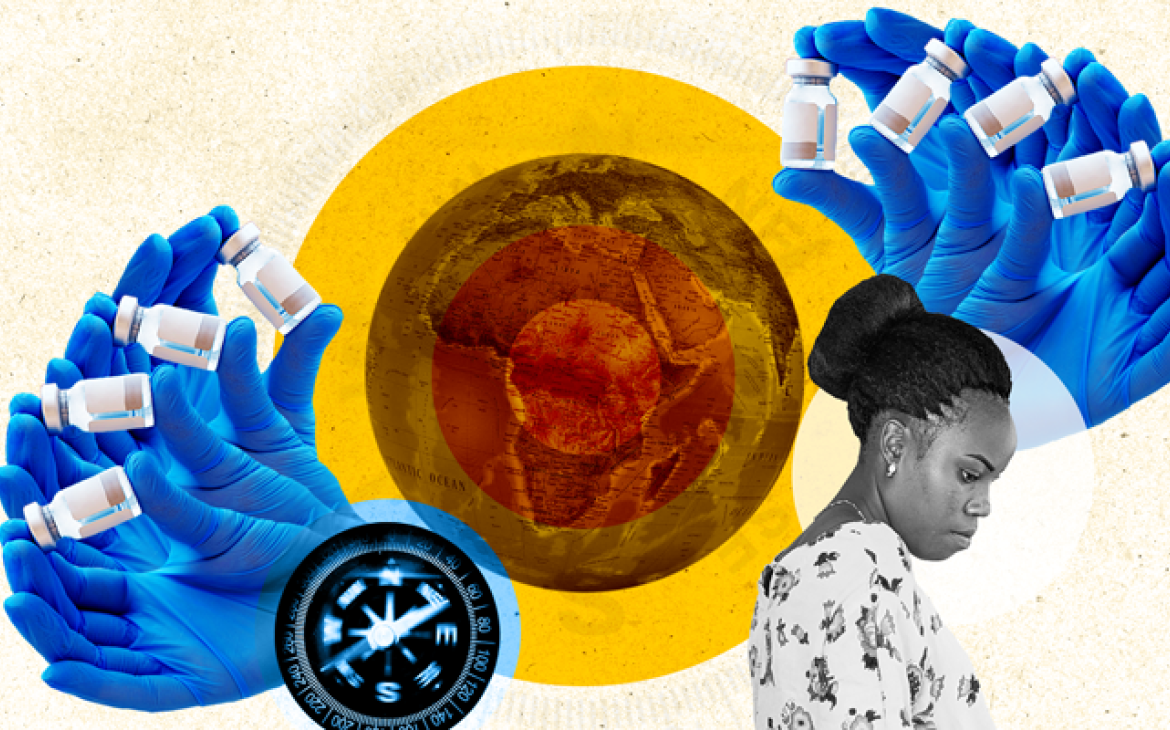
What’s the connection between chemistry and global health?
Well for starters, all modern medicine is dependent on advances in chemistry and other sciences. If we’re to keep up with increasing health challenges around the world – not just in developing countries but also in Asia, Europe, and even here in the United States – we simply must invest in chemical and scientific research.
For more than 20 years, USP’s Visiting Scientist Program has facilitated this kind of learning, research and exchange of knowledge by inviting scientific professionals from other countries to work directly on USP research projects.
Recently we spoke with Santiago Gallardo Dávila, one such visiting scientist enrolled in the program. Mr. Gallardo works as a pharmaceutical chemist in the Quality Control Laboratory at the Mexican Pharmacopeia.
He is incredibly enthusiastic about his profession, and champions the idea that chemistry will offer the solutions needed to tackle health challenges around the world.
Why did you decide to become a scientist?
When I was twelve years old in elementary school, I had my first encounter with chemistry. I gave a little presentation about the principle of microscopic components.
At that time, I didn’t know how to use the Internet. But I tried my best and although it was a simple presentation, that’s when it dawned on me, “I can do this! Science is for me!”
Later on in secondary school, my chemistry teacher told me that I had the aptitude to become a chemist. What he saw in me was an interest in the subject, and my willingness to help my classmates to improve their laboratory practice.
I wanted to be in a high school where I wouldn’t just graduate with a high school diploma, but with a technical degree as well. Actually, I’m both a chemist and a laboratory assistant coach. So for three years I studied in this capacity, made good grades and graduated.
Thereafter, I decided to go to university at the National Polytechnic Institute, one of the most recognized universities for chemistry in Mexico City.
To be honest, the first two years were very difficult. For example math, engineering and organic chemistry were tough for me. But in the end, I did it! I’m here now and I’m a chemist, and everyday I say to myself “You’re on the right path.”
What are you hoping to learn from the USP visiting scientist program?
Not hoping. I’m already learning a lot.
This program is great. USP is always thinking about the future, not just the past. In Mexico City I work as a chemist in the Quality Control Laboratory but my work here is about modernization of monographs for identity tests. So this is very interesting work and I’m part of a great team. I’m very happy to have this opportunity.
How will this program impact the work you do in Mexico?
This project will have a big impact when I return to Mexico City. I will share what I’ve learned with my colleagues and I’ll tell them, “Hey, we have a lot of work to do. We have a lot to improve on but we have the resources, the facilities, and the knowledge – and we’re going to do it!”
I’m a good chemist. I know this because I met all the requirements for this program. However, I’m also learning what I can do better, and where I can improve. I now have the opportunity to interact with and share feedback with a lot of peers from around the world, and I’m looking forward to exchanging ideas about improving global health.
What aspect of USP’s culture is most appealing to you?
When I arrived here quite honestly, my first experience was difficult. Mexico is totally different – the life, transportation, food, everything!
But one of the things I like most about USP is that everyone who works here is very clear about what they’re doing. USP people understand their objectives, and what they need to do to achieve their goals. I think this focus is great. I admire how forward-thinking this organization is, always looking to improve – and not just improving reference standards but global health as a whole. I also like that USP looks for people who are intelligent, and who have a lot of health experience. So it’s really a great place.
What one change would you like to see happen in public health in your lifetime?
I think the one change I’d like to see in my lifetime is more people having access to healthcare and medical services.
We have too many health problems around the world these days and we need to get healthcare to those who need it most. We can do it! We have the information, the knowledge, facilities, and some very intelligent people. It’s just a matter of focusing all these things to achieve that one goal.
To learn more about the USP Visiting Scientist Program visit, http://www.usp.org/global/exchange-programs/visiting-scientist-program
**Disclaimer: The views expressed in this interview are those of Mr. Gallardo, and not necessarily those of USP.


